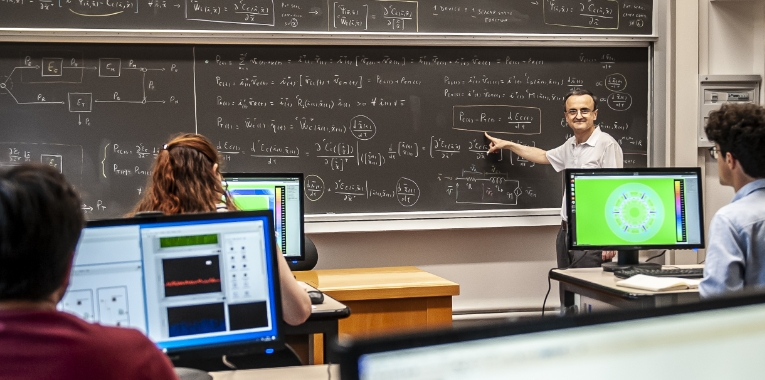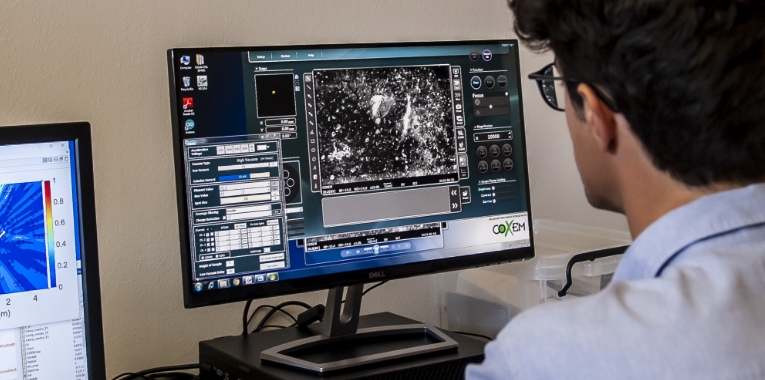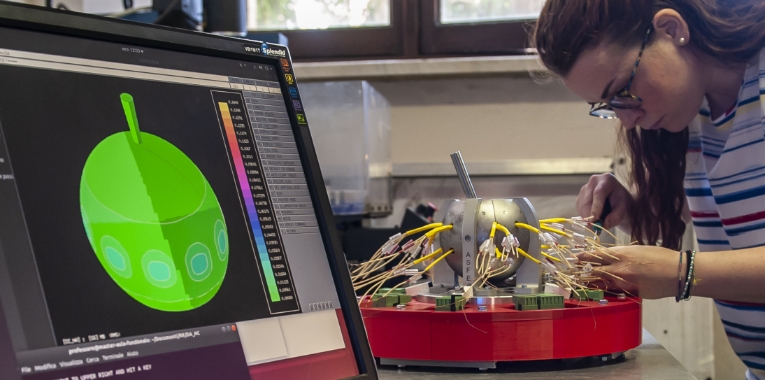
The Master’s Degree in Electrical Engineering equips you with all the skills necessary to design and manage electrical systems and devices, both low- and high-power.
Examples of systems typically covered in this field include electric motors for industrial and mobility applications, and energy production and transmission systems (such as renewable and non-renewable power plants, transmission lines, and energy storage systems).
You will also gain advanced knowledge in electromagnetism, energy markets, mechanical design, and the application of artificial intelligence to electrical engineering problems.

Both years of the program combine core courses and elective course groups, giving you the flexibility to build a study path that matches your interests and strengths, while ensuring rigorous and coherent training in electrical engineering.
At this particular moment in history, dependence on fossil fuels, increased electrification and urban pollution are topics of debate in many contexts. Electrical engineers are therefore key figures.
The skills you acquire will enable you to work in all sectors where electricity is an important factor, and your interdisciplinary skills (mechanics, AI, economics) will guarantee you access to all positions requiring a systemic vision and teamwork.
A key role in the energy transition
In today’s world, where electrification, decarbonization, and urban air quality are urgent global priorities, electrical engineers are at the forefront of change.
Specialized yet versatile skills
The program prepares you to work in a wide range of industrial and technological sectors.
Interdisciplinary approach
With training that includes mechanics, artificial intelligence, economics, and management, you’ll develop a system-wide perspective and the ability to work in multidisciplinary teams.
Broad and cross-sector employability
You’ll be equipped to join companies in various fields, public agencies, energy service providers, and consulting firms, in both technical and managerial roles.
Interdisciplinary program, with high-quality scientific and technical perspectives
Find a job easily

Graduates of this Master’s program are highly sought after in the job market.
Private industry, in design, development, and consulting roles
Energy and automation sectors
Electrical systems for mobility, industrial applications, or infrastructure
Academic or industrial research
If you prefer to continue studying, you can choose a PhD or a Level II Master’s degree.
Over 90% of graduates find employment within one year
100% of graduates would choose this program again[
Sami Barmada, the Chair of the Master’s Degree in Electrical Engineering, outlines the key reasons for enrolling in the program and the career opportunities awaiting graduates.
DESTEC – University of Pisa
Largo Lucio Lazzarino, 2, 56122 Pisa
Phone DESTEC: +39 050 2217300
© Copyright – INGEGNERIA DELL’ENERGIA | University of Pisa Lungarno Pacinotti 43 56126 Pisa | P.I. 00286820501 C.F. 80003670504